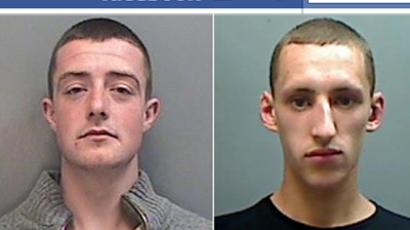Ex-spy chief sees need for bugging Facebook and Twitter

Snooping powers of the UK Government should be widened to cover social media sites. The former head of the UK's intelligence gathering centre GCHQ, Sir David Ormand has put forward the suggestion.
Websites like Twitter and Facebook are being used by criminals, terrorists and pedophiles as a "secret space" in which to communicate, according to Sir David.He added that those responsible for protecting society need to use up-to-date technology to keep suspects under surveillance.However, the former Intelligence officer stressed individual accounts should only be 'hacked' under special circumstances.Government plans are underway to force internet service providers to keep much closer tabs on email traffic – including when and where they are sent and by whom. Details are currently being finalized in the upcoming Communications Capabilities Development Programme. Sir David called for a Green Paper on monitoring social media sites, and for a partnership with private industry to develop analytical tools to monitor developments.“Social media is how people are talking to each other,” he said, as he launched a report by Demos, the think tank. There have been reports that Somali pirates in the Gulf of Aden are using social media to communicate, and Mr Omand said that in such circumstances the authorities need to be able to gain access to private accounts.However, critics to the report say that there is no need to extend the Government's snooping capabilities; that the state already has access to a mass of stored information about suspected bombers or pedophiles. The police or the security services can obtain warrants to tap phones, follow individuals, enter their homes and seize their computers. According to the Demos report, around 40% of people in the UK feel the police should be able to access information on social networking sites when investigating crime.Objectors fear that these new proposals pose a real threat to personal liberties. Nick Pickles, director of privacy and civil liberties group Big Brother Watch, said of the Demos report: “Only a tiny fraction of surveillance authorizations and data requests ever go before a judge, and there is a real risk that the Home Office’s latest communications plans will further undermine a system that is already failing to protect citizens privacy. “It is perfectly legitimate for the authorities to be able to use new technology to monitor a suspect, but the Home Office’s plans involve indiscriminate surveillance of every person using the internet and no amount of legal tinkering will make that any more acceptable.”This fresh debate over freedom of speech echoes the backlash that greeted David Cameron's calls for greater control over social media sites following last summer's riots. The Prime Minister initially said the government was looking to ban people from using sites such as Twitter and Facebook if they were thought to be plotting criminal activity.Perry Sutcliffe-Keenan, 22 and Jordan Blackshaw, 20 were both sentenced to four years in a young offenders institution last August, after posting messages on Facebook inciting others to violence in their areas. The severity of the punishments provoked a public outcry from lawyers and civil liberty groups, appalled at what they termed "disproportionate" sentences.But this week, Sir David insisted the authorities must be able to gain access to private accounts, saying: “I don’t know anybody who thinks that it should be ring fenced and allowed to become a secret space.”The Demos report suggests the Regulatory and Investigatory Powers Act (RIPA) could be used to gain legal access to Facebook and Twitter accounts.The act states that warrants are not required for “directed surveillance” of a suspect – for instance observing their movements – and that the principle could be extended to the internet where investigators were using publicly available information.However, where individuals have put up privacy settings, they should be required to apply for a warrant if communications are to be “intercepted” according to Sir David. So bugging private Blackberry messages would be the modern equivalent of bugging a personal telephone call. But with one big difference – don't expect to hear any tell-tale clicks on the end of the line.














